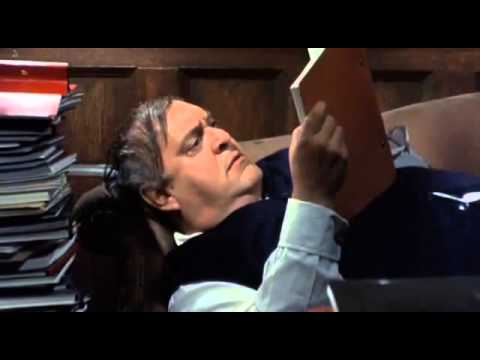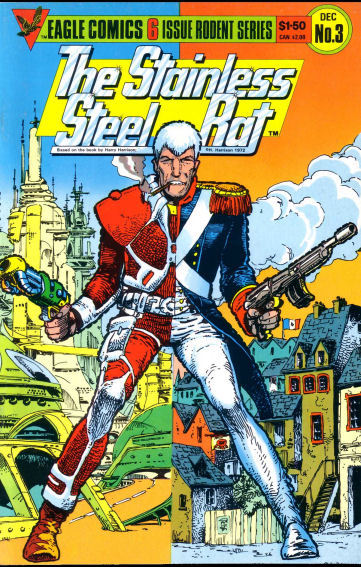
Max Bialystock reading bad books, including one about a transformation into a giant insect…
In my weekly column, I usually examine good writing. However, one can learn as much through the mistakes of others and what to avoid as their successes. Certain aspects of bad writing have been with us for centuries. Note how dreadful but eerily similar a piece of popular chick-lit from the 19th century, Dora Thorne, is to its 21st century descendants, only without the sex.
However, I have come across several writing sins that are exclusive to the past 20-30 years in science fiction and fantasy. The reasons for this will soon become apparent.
1. A Scene Imagined as an Existing Video Game
I was recently reading a book that had come out in the past five years that described a battle between starships. At first, I frowned at how generic, staccato, and unimaginative the description was. One ship fires lasers. Another fires rockets. There are some evasive maneuvers.
But then I figured out what it was. Nothing more than a by-the-numbers description of an on-rails space shooter. The world’s most boring space shooter, sans innovation.
Writing a bad scene that is describing what one sees in a video game is much worse than a bad scene born of the author’s imagination. My dominant sensation reading that passage was “Why am I reading this book instead of playing a cool space shooter?”
Books and video games each have their own relative strengths and weaknesses.

Geometry Wars, more creative than the scene in the book
I’ve never been a fan of video games that attempted to tell a story though traditional literary means, feeling that the result was always a hackneyed, clumsy, third-rate mess. Well, noticeably describing the action of a video game through words is an insult towards both mediums.
Now, trying to imagine an action scene as a unique game conjured up in one’s own imagination might work. However, that requires originality and effort. Doing so where it’s clear as day what the game source is makes for bad writing that draws the reader out of the book.
2. A Scene Imagined as a Generic Hollywood Flick
Similar to the first one, only this time it reads as a script for a movie. And not a cool action flick like Die Hard, a crazy blood-soaked Japanese film, or a Fellini masterpiece, but the dreary, predictable, mass-produced Hollywood garbage of today. All the way down to the strictly regimented, three-act structure known as “Save the Cat”.
On some level, I get it. Writing novels doesn’t pay as well as it did 50, let alone 100 years ago. Getting one’s book optioned as a movie is where the big bucks are.
However, if I can’t stand romantic melodrama with clipped dialogue, plot holes galore, and linear, telegraphed story-telling in a movie, how the hell is it tolerable in a book?! I love movies, but it’s an intrinsically more shallow medium than literature is.
An intellectual depth that is perfectly acceptable in an all-time great movie would be too simplistic for a good book. Thus, when a novel transcribes the script for an insultingly dumb movie, it becomes an unreadable disaster.
3. Smugness From Narrator and/or Characters
I’m sure other authors do it, but the clearest example of this sin is John Scalzi. Both his narration and many of his central characters (especially the female ones) have this attitude of being so “cool” and above it all. Oftentimes, there are almost winks and nods to the reader, fracturing, if not breaking the fourth wall. In the prologue for The Collapsing Empire, which I reviewed at length, there is a murderous mutiny and the prospect of the entire ship exploding.
How do the characters respond in the extreme stress of this situation? Why, with snark;
Eva Fanochi probably could have answered that for you,” Gineos said. “If you hadn’t murdered her, that is.”
“Now’s not a great time for that discussion, Captain.”
Well, this approach is not cool. It’s pathetic and lame. If the characters don’t care whether they live or die, why the hell should the reader? And if the author doesn’t take his own work seriously, why the hell should the reader? This smugness is absolute cancer for both genuine human emotion and story-telling, disengaging one from the book.

Unlike Scalzi’s protagonists, the Stainless Steel Rat owes no man or woman a blowjob!
Now, this is a recent trend. Even a satirical science fiction comedy series like Harry Harrison’s Stainless Steel Rat is free of smugness. Jim DiGriz might have an easy-going, jocular personality overall, but the physical pain and fear he experiences throughout his adventures, and putting his life on the line, are no laughing matter to him. Nor are they described in light terms by Harrison, let alone smug ones.
Again, a writer has to buy into their own story, its significance and its themes, if they have any hope of the reader doing so.
No doubt there are some other typical flaws I’m missing here. But these three stand out as pitfalls for newer authors to avoid.
If you remove the smugness from a Scalzi book, you’ve got nothing left.
Scalzi is rich and you are not.
-
Donald Trump is president and you are an internet troll.
-
Scalzi isn’t rich. He earns a top 5-10% income, which is very far from rich.
This was yummy bait, thanks!
I notice this smugness in some new writers especially, even good ones. Baen writer Charles E. “Chuck” Gannon succumbs to this in the first book or two of his Terran Republic, with all the covert guys wink wink nudge nudge “I got more super-secreter-squirrel clearance than you, nyahh-nyahh”–but it dies out eventually and his writing gets better, as does the story.
Heinlein was one of the worst for this in his later books. Scalzi is simply jumping on the train that includes guys like the Whedons. Whedon-like witty smug can work in the right places–Firefly, Avengers, Agents of Shield–but it works less well in books, especially if overused and everybody’s smug.
In my books I sometimes have a smugger or two, but s/he is there for that harlequin role, just one aspect of how various characters deal with crisis. And, they now and again get the smuggery knocked out of them.
Like many things, it’s not bad in itself, but in how it’s handled.
Another one is chatland relationships instead of normal ones. Flat affect between characters that are supposed to be intimate friends, lovers or spouses. A few novels and short stories tried to literally do chatlogs as dialogue, but now what you see is the same basic flatness without it being labelled rightly.
Both 1 and 2 are particular pet peeves of mine. The 3rd one I’m less certain of. I mean, I despise smugness, but some people are that way. I wouldn’t identify with a smug protagonist. A smug nemesis would have to get his comeuppance.
Scalzi makes money and your blog does not.
-
I think the publishing house it’s attached to does fairly well.
-
Well the blog’s purpose isn’t to make money directly but as a news/marketing/opinion site it does ok. I’m sure that writers from other publishers have benefitted with allied marketing and linksl
-
Was Scalzox whining about this blog recently? This is quite aligned with the usual modus operandi of his fanboys.
Excellent post, Vlad. I agree with all of this. The need to buy into one’s story or novel, crafting it from whole cloth, owning it at every level (setting, character, dialogue, emotional tone, everything) is something that, in my capacity as a freelance editor, I find myself constantly advising newer authors to do.
As the author of “Drown the Cat: The Rebel Author’s Guide”, I’m particularly grateful that you singled out the Blake Snyder book, “Save the Cat”, for special mention. I can’t believe how many people buy into his nonsense advice.
Best,
Dario
-
Dario,
What in your view is Snyder’s most pernicious legacy that he left to writers?
Are there any redeeming qualities to his advice or is it just a lazy man’s short cut to writing?
xavier